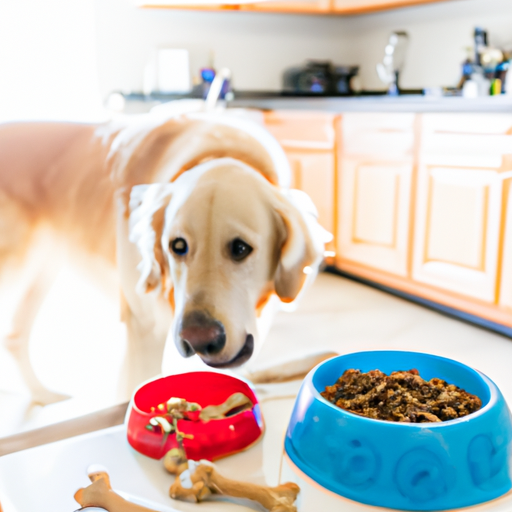As a caregiver, you are likely to face many challenges, and one of them can be dealing with a pet who has lost their appetite. This guide is designed to provide you with actionable advice to help you navigate this situation with as much ease as possible.
Introduction
Even the most food-motivated dog can have off days. But when your furry friend consistently turns away from their food, it can be a cause for concern. Here’s how you can stimulate your dog’s appetite and ensure they’re getting the nutrition they need.
1. Identifying the Problem
Before addressing the issue, it’s crucial to identify the reasons behind your dog’s loss of appetite.
- Health issues: Illness or injury can cause a loss of appetite. If your dog’s loss of appetite persists, consult a vet.
- Dietary changes: Changing your dog’s food suddenly can affect their willingness to eat.
- Behavioral issues: Stress, anxiety, or changes in the environment can also impact your dog’s appetite.
2. Natural Appetite Stimulants
Once you’ve identified the problem, you can introduce natural appetite stimulants.
- Warm food: Heating your dog’s food can make it more appealing by enhancing its smell.
- Bone broth: Add bone broth to your dog’s food. It’s tasty and packed with nutrients.
- Fish oil: Fish oil is another healthy and appealing addition to your dog’s meal.
3. Medical Options
If natural remedies don’t work, your vet might recommend medical options. These could include:
- Appetite-stimulating medications: These can boost your dog’s desire to eat.
- Dietary supplements: Certain supplements can enhance your dog’s appetite.
Remember to consult with a vet before trying any new medication or supplement.
4. Behavioral Solutions
Sometimes, the issue isn’t physical, but psychological. In such cases, consider the following:
- Regular exercise: Physical activity can stimulate your dog’s appetite.
- Positive reinforcement: Reward your dog when they eat their food to reinforce the behaviour.
- Create a peaceful environment: Minimize stress and disturbances during meal times.
| Suggestions | Implementation |
|---|---|
| Regular Exercise | Morning and evening walks |
| Positive Reinforcement | Use treats or praises |
| Peaceful Environment | Quiet, comfortable spot for meals |
5. Frequently Asked Questions
Q: How long can a dog go without eating?
A: Generally, dogs can go 24-48 hours without eating. However, this depends on their health, age, and size.
Q: Should I force-feed my dog if they refuse to eat?
A: It’s not recommended to force-feed your dog. This can lead to stress and worsen the situation.
Q: When should I consult a vet about my dog’s loss of appetite?
A: If your dog hasn’t eaten for more than 48 hours or shows other signs of illness, consult a vet immediately.
Remember, you know your dog best. If you see any changes in their behaviour or physical condition, it’s always good to consult a professional. You’re not just their caregiver; you’re their advocate.



